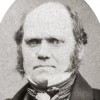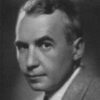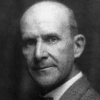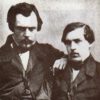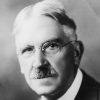It’s been a rough day. I got up this morning
Rodney Dangerfield (1922-2004) American comedian, actor [b. Jacob Cohen]
(Attributed)
These miserable ways
The forlorn spirits endure of those who spent
Life without infamy and without praise.
They are mingled with that caitiff rabblement
Of the angels, who rebelled not, yet avowed
To God no loyalty, on themselves intent.
Heaven chased them forth, lest, being there, they cloud
Its beauty, and the deep Hell refuses them,
For, beside these, the wicked might be proud.[Questo misero modo
tegnon l’anime triste di coloro
che visser sanza ’nfamia e sanza lodo.
Mischiate sono a quel cattivo coro
de li angeli che non furon ribelli
né fur fedeli a Dio, ma per sé fuoro.
Caccianli i ciel per non esser men belli,
né lo profondo inferno li riceve,
ch’alcuna gloria i rei avrebber d’elli.]Dante Alighieri (1265-1321) Italian poet
The Divine Comedy [Divina Commedia], Book 1 “Inferno,” Canto 3, l. 34ff (3.34-42) [Virgil] (1309) [tr. Binyon (1943)]
(Source)
This passage is likely the basis for John F. Kennedy's famous paraphrase, which he credited to Dante:
The hottest places in hell are reserved for those who in a period of moral crisis maintain their neutrality.
That was originally written (and ascribed to Dante) by Henry Powell Spring in 1944. JFK used it multiple times, including in a speech as President in Germany a few days before his famous "Ich bin ein Berliner" speech. (More info on this paraphrase here.)
Dante (and, thus, Dante's cosmos) judges based on action. Thus he ranks those who would not act, pusillanimous neutrals both earthly and heavenly, as worse than even those who have acted for evil ends, and the first whose punishment we get to see. Though they committed no evil acts, they also failed to commit good ones, allowing evil to flourish. Even the tortured denizens of Hell would consider themselves their betters, thus their not being allowed in that infernal realm. Rejecting Heaven and Hell, they are blocked from either. While undergoing some corporal punishment, far worse is that, having stood only for themselves, they are robbed of their identity, nameless for all eternity (ll. 46-51).
Compare this sentiment to Revelation 3:15-16:
I know thy works, that thou art neither cold nor hot: I would thou wert cold or hot. So then because thou art lukewarm, and neither cold nor hot, I will spue thee out of my mouth.
(Source (Italian)). Alternate translations:
These doleful Beings, he reply'd, have liv'd
In Indolence, without or blame or praise.
Angels are mix'd with this unhappy band,
Who neither Rebels, nor yet faithful were
To God, but liv'd sequestered by themselves.
These Heavn' discarded for being too remiss,
Nor did e'en Hell this lukewarm herd receive;
That Favour might not to the damnn'd be shewn.
[tr. Rogers (1782), ll. 30-37]
Behold th' ignoble sons of sloth and shame,
Who scorn'd alike the voice of praise and blame,
Nor dreaded punishment, nor sought reward.
Mingled they march with that degen'rate brood,
Who when the Rebel of the sky withstood
His sov'reign Lord, aloof their squadrons held:
Viewing with selfish eye the fierce debate,
Till, from the confines of the heav'nly state,
Trembling they saw the rebel host expell'd.
Nor bore the victor-Lord the alien race,
But straight, the foul pollution to efface,
Hurl'd them indignant from the bounds of light:
This frontier then the dastard crew receiv'd,
Nor deeply damn'd, altho' of bliss bereav'd,
And doom'd to wander on the verge of night';
They suffer here, lest yon' more guilty train
of crimes unequal, doom'd to equal pain,
Blaspheming Heavn'n, should make their impious boast.
[tr. Boyd (1802), st. 8-11]
This miserable fate
Suffer the wretched souls of those, who liv'd
Without or praise or blame, with that ill band
Of angels mix'd, who nor rebellious prov'd
Nor yet were true to God, but for themselves
Were only. From his bounds Heaven drove them forth,
Not to impair his lustre, nor the depth
Of Hell receives them, lest th' accursed tribe
Should glory thence with exultation vain.
[tr. Cary (1814)]
The miserable crew
Of souls now lingers in this piteous mood,
To whom, alive, nor blame nor praise was due.
Commingled are they with that caitiff brood
Of angel natures, which nor dared rebel,
Nor yet kept faith, but selfish ends pursued.
Them, not to be less fair, must heaven expel,
Nor the abyss receive, lest their dispraise
Redound for glory to the sons of hell.
[tr. Dayman (1843)]
This miserable mode the dreary souls of those sustain, who lived without blame, and without praise.
They are mixed with that caitiff choire of the angels, who were not rebellious nor were faithful to God; but were for themselves.
Heaven chased them forth to keep its beauty from impair; and deep Hell receives them not, for the wicked wouild have some glory over them.
[tr. Carlyle (1849)]
This miserable lot
Possess the souls of those whose living days
Passed not with infamy, nor yet with praise.
Immingled they are in the caitiff choir
Of neutral angels, for themselves that stood --
Neither rebelled nor loyal were to God.
The heavens have chased them, for they'd sully heaven --
The infernal depths receive them not, because
No glory can the wicked have by those.
[tr. Bannerman (1850)]
This state of misery is held
By the sad spirits of those, who in their lives
Knew neither act of infamy nor praise.
And they are mingl'd with the wicked choir
Of Angels who, not rebels to their God,
Were yet not faithful, knowing but themselves;
Cast forth that Heav'n's pure beauty be not stain'd,
nto Hell's gloomy depths permitted not
Lest they be cause of glory to the lost.
[tr. Johnston (1867)]
This miserable mode
Maintain the melancholy souls of those
Who lived withouten infamy or praise.
Commingled are they with that caitiff choir
Of Angels, who have not rebellious been,
Nor faithful were to God, but were for self.
The heavens expelled them, not to be less fair;
Nor them the nethermore abyss receives,
For glory none the damned would have from them.
[tr. Longfellow (1867)]
This wretched fashion keep the sorry souls of those who lived without infamy and without praise. They are mingled with that caitiff band of the angels who were not rebel, nor were faithful to God, but were for themselves. Heaven chased them, that it should not be less fair, nor does the deep hell receive them, since the damned would have some boasting of them.
[tr. Butler (1885)]
After this fashion drear
These wretched souls their after-life pursue
Who both from infamy and praise lived clear.
Mingled they are with that contemptible crew
Of angels who would not rebellion dare,
Not faithful Godwards, to themselves but true.
Heaven drove them out, lest it might be less fair,
Neither received them deepest Hell's domain,
That from them, evil should no glory share.
[tr. Minchin (1885)]
This miserable measure the wretched souls maintain of those who lived without infamy and without praise. Mingled are they with that caitiff choir of the angels, who were not rebels, nor were faithful to God, but were for themselves. The heavens chased them out in order to be not less beautiful, nor doth the depth of Hell receive them, because the damned would have some glory from them.
[tr. Norton (1892)]
Such hapless state the joyless souls of those sustain, who lived their lives untouched by either infamy or praise. They are huddled together with that base crew of angels who rose not in revolt, nor kept their faith with God, but were for self alone. Heaven drave them out that its brightness might remain undimmed; nor doth the depth of Hell receive them, for the damned would glory over them.
[tr. Sullivan (1893)]
This miserable condition
Keeps the sad souls of those who in their lifetime
Were without infamy and without praises;
Commingled are they with that caitiff chorus
Of angels who aforetime were not rebels.
Nor faithful were to God, but stood as neutral.
Heaven drave them forth lest they should mar its beauty;
Nor doth the lower depth of hell receive them,
Since that from them the damned would gain some glory.
[tr. Griffith (1908)]
This miserable state is borne by the wretched souls of those who lived without disgrace and without praise. They are mixed with that caitiff choir of the angels who were not rebels, nor faithful to God, but were for themselves. The heavens drove them forth, not to be less fair, and the depth of Hell does not receive them, lest the wicked have some glory over them.
[tr. Sinclair (1939)]
This dismal company
Of wretched spirits thus find their guerdon due
Whose lives knew neither praise nor infamy;
They're mingled with that caitiff angel-crew
Who against God rebelled not, nor to Him
Were faithful, but to self alone were true;
Heaven cast them forth -- their presence there would dim
The light; deep Hell rejects so base a herd,
Lest sin should boast itself because of them.
[tr. Sayers (1949)]
These are the nearly soulless
whose lives concluded neither blame nor praise.
They are mixed here with that despicable corps
of angels who were neither for God nor Satan,
but only for themselves. The High Creator
scourged them from Heaven for its perfect beauty,
and Hell will not receive them since the wicked
might feel some glory over them.
[tr. Ciardi (1954), ll. 32-39]
Such is the miserable condition of the sorry souls of those who lived without infamy and without praise. They are mingled with that base band of angels who were neither rebellious nor faithful to God, but stood apart. The heavens drive them out, so as not to be less beautiful; and deep Hell does not receive them, lest the wicked have some glory over them.
[tr. Singleton (1970)]
This wretched state of being
is the fate of those sad souls who lived a life
but lived it with no blame and with no praise.
They are mixed with that repulsive choir of angels
neither faithful nor unfaithful to their God,
but undecided in their neutrality.
Heaven, to keep its beauty, cast them out,
but even hell itself would not receive them
for fear the wicked there might glory over them.
[tr. Musa (1971)]
This miserable way
is taken by the sorry souls of those
who lived without disgrace and without praise.
They now commingle with the coward angels,
the company of those who were not rebels
nor faithful to their God, but stood apart.
The heavens, that their beauty not be lessened,
have cast them out, nor will deep Hell receive them --
even the wicked cannot glory in them.
[tr. Mandelbaum (1980)]
That is the manner of existence
Endured by the sad souls of those who lived
Without occasion for infamy or praise.
They are mixed with that abject squadron of angels
Who did not think it worth their while to rebel
Or to be faithful to God, but were for themselves.
Heaven chased them out, so as not to become less beautiful,
And the depths of hell also rejected them,
Lest the evil might find occasion to glory over them.
[tr. Sisson (1981)]
This is the sorrowful state of souls unsure,
Whose lives earned neither honor nor bad fame.
And they are mingled with angels of that base sort
Who, neither rebellious to God nor faithful to Him,
Chose neither side, but kept themselves apart --
Now Heaven expels them, not to mar its splendor,
And Hell rejects them, lest the wicked of heart
Take glory over them.
[tr. Pinsky (1994), ll. 30-37]
This wretched measure is kept by the miserable souls who lived without infamy and without praise.
They are mixed with that cowardly chorus of angels who were not rebels yet were not faithful to God, but were for themselves.
The heavens reject them so as not to be less beautiful, nor does deep Hell receive them, for the wicked would have some glory over them.
[tr. Durling (1996)]
This is the miserable mode in which those exist, who lived without praise, without blame. They are mixed in with the despised choir of angels, those not rebellious, not faithful to God, but for themselves. Heaven drove them out, to maintain its beauty, and deep Hell does not accept them, lest the evil have glory over them.
[tr. Kline (2002)]
This awful habitat is given
over to the "so-so souls" who, when they lived,
were neither cold nor hot.
They share this region with a retinue
of neutral angels, those who neither were for God
nor Satan, but for you-know-who.
To keep its reputation from impair,
Heaven expelled them; they were barred from Hell,
in case in case the wicked thought themselves more fair."
[tr. Carson (2002)]
This baleful condition is one, he said
that grips those souls whose lives, contemptibly,
were void alike of honor and ill fame.
These all co-mingle with a noisome choir
of angels who -- not rebels, yet not true
to God -- existed for themselves alone.
To keep their beauty whole, the Heavens spurned them.
Nor would the depths of Hell receive them in,
lest truly wicked souls boast over them.
[tr. Kirkpatrick (2006)]
This miserable state is borne
by the wretched souls of those who lived
without disgrace yet without praise.
They intermingle with that wicked band
of angels, not rebellious and not faithful
to God, who held themselves apart.
Loath to impair its beauty, Heaven casts them out,
and the depth of Hell does not receive them
lest on their account the evil angels gloat.
[tr. Hollander/Hollander (2007)]
This is how the vilest,
Sorriest souls have lived their lives,
Neither disgraced nor ever once admired.
Mixed among them are souls thrown from on high,
Angels who neither joined the Devil's rebellion
Nor stood with God. They simply stayed to the side.
Heaven rejected them as ugly, and Hell
Refused to let them in its deeper parts,
Outshining demons if the Devil let them dwell there.
[tr. Raffel (2010)]
Their pride to have no prejudice,
Seeking no praise for fear of taking blame,
They were for nothing, nor were they against:
They made no waves and so they made no name.
Now their neutrality is recompense,
For here there is no cautious holding back:
Voices once circumspect are now incensed
And raise to make each other's eardrums crack
Thus they are joined to that self-seeking squad
Of angels fitted neither to rebel
Against, nor put their heartfelt faith in, God --
Hunted from Heaven and locked out of Hell
Because the perfect sky would brook no blur,
And in the lower depths the rebels prized
The glory won from being what they were,
Not the nonentities that they despised.
[tr. James (2013), ll. 44-59]
Keep close behind me. Let them say their say.
Stand straight, a mighty tower unwavering,
its height unshaken by such breaths of wind.[Vien dietro a me, e lascia dir le genti:
sta come torre ferma, che non crolla
già mai la cima per soffiar di venti.]Dante Alighieri (1265-1321) Italian poet
The Divine Comedy [Divina Commedia], Book 2 “Purgatorio,” Canto 5, l. 13ff (5.13-15) [Virgil] (1314) [tr. Kirkpatrick (2007)]
(Source)
Virgil scolding Dante for slowing down when other spirits are pointing and murmuring about him having a shadow, unlike them.
(Source (Italian)). Alternate translations:
Can murmurs move you? Let them whisper on,
And bid your Reason firmly keep its throne,
and o'er the fortress of the mind preside.
[tr. Boyd (1802), st. 2]
Come after me, and to their babblings leave
The crowd. Be as a tower, that, firmly set,
Shakes not its top for any blast that blows!
[tr. Cary (1814)]
Come thou behind me, let the people talk;
Stand like a steadfast tower, whose lofty crest
Ne'er quaked obedient to the rocking blast.
[tr. Bannerman (1850)]
Come after me, and let the people talk;
Stand like a steadfast tower, that never wags
Its top for all the blowing of the winds;
[tr. Longfellow (1867)]
Come behind me, and let the folk talk; stand like a firm tower which never shakes its top for blast of winds.
[tr. Butler (1885)]
Follow thou me, and let the people talk:
Stand like a solid tower, that doth not bow
Its crest at any time, though wild winds stalk.
[tr. Minchin (1885)]
Come after me, and let the people talk. Stand as a tower firm, that never wags its top for blowing of the winds.
[tr. Norton (1892)]
Follow me and let the people talk; stand thou as a firm tower which never shakes its summit for blast of winds.
[tr. Okey (1901)]
Come after me and let the people talk. Stand like a firm tower that never shakes its top for blast of wind.
[tr. Sinclair (1939)]
Follow behind me and let them talk their fill:
Stand like a tower whose summit never shakes
For the wind's blowing, and stays immovable.
[tr. Binyon (1943)]
Follow thou me, and let the people chatter;
Stand as a tower stands firm in time of trouble,
Nor bends its head, though winds may bawl and batter.
[tr. Sayers (1955)]
Follow my steps, though all such whisper of you:
be as a tower of stone, its lofty crown
unswayed by anything the winds may do.
[tr. Ciardi (1961)]
Follow me and let the people talk.
Stand as a firm tower which never
shakes its summit for blast of winds.
[tr. Singleton (1973)]
Keep up with me and let the people talk!
Be like a solid tower whose brave height
remains unmoved by all the winds that blow.
[tr. Musa (1981)]
Come on behind me, let those people talk:
Stand like a solid tower which does not shake
Its top whatever winds are blowing on it.
[tr. Sisson (1981)]
Come, follow me, and let these people talk:
stand like a sturdy tower that does not shake
its summit though the winds may blast.
[tr. Mandelbaum (1982)]
Come after me, and let the people talk:
be like a strong tower whose top never falls,
however hard the winds may blow.
[tr. Durling (2003)]
Follow me close behind, and let the people talk: stand like a steady tower, that never shakes at the top, in the blasts of wind.
[tr. Kline (2002)]
Just follow me and let the people talk.
Why can't you be like a sturdy tower
that does not tremble in the fiercest wind.
[tr. Hollander/Hollander (2007)]
Just follow me and let the people talk:
Stand steady as a tower, which doesn't shake
Its top whenever the winds decide to blow.
[tr. Raffel (2010)]
Karl Marx paraphrased the first line of this tercet in the conclusion of his Author's Preface to the First Edition of Das Kapital (1867), crediting Dante:
Every opinion based on scientific criticism I welcome. As to the prejudices of so-called public opinion, to which I have never made concessions, now as aforetime the maxim of the great Florentine is mine: "Segui il tuo corso, e lascia dir le genti."
Which reads something like "Follow your own course, and let the people talk." The phrase is given in Italian even in the original German edition.
It is not the strongest of the species that survive, nor the most intelligent, but the one most responsive to change.
Charles Darwin (1809-1882) English naturalist
(Spurious)
Though frequently attributed to Darwin (most specifically in The Origin of Species (1859)), this phrase is not actually found in Darwin's work.
He who allows oppression shares the crime.
Erasmus Darwin (1731-1802) English physician and poet
The Botanical Garden (1789)
For here is spiritual pride, the ultimate sin, in action — the sin of believing in one’s own righteousness. The true prophet says humbly, “To me, a sinful man, God spoke.” But the scribes and Pharisees declare, “When we speak, God agrees.” They feel no need of a special revelation, for they are always, in their own view, infallible. It is this self-righteousness of the pious that most breeds atheism, by inspiring all decent, ordinary men with loathing of the enormous lie.
That is man’s Christianity, a means to earthly triumph. And in our present crisis we are appealing to it to defeat the Russians for us. We hear of the life-and-death struggle between Christianity and Communism, the necessity of “keeping God alive as a social force” — as if our Lord could not survive a Soviet victory! It is a poor sort of faith that imagines Christ defeated by anything men can do
We of the churches often gather our robes away from contamination, and thank God that we are not as other men. We don’t despise God’s name; in fact, we call upon it constantly to justify ourselves …. If we object to meat-eating, we declare that God is vegetarian; if we abhor war, we proclaim a pacifist Deity. He who turned water into wine to gladden a wedding is now accused by many of favouring that abominable fluid grape juice. There can hardly be a more evil way of taking God’s name in vain than this way of presuming to speak in it.
Book lovers are thought by unbookish people to be gentle and unworldly, and perhaps a few of them are so. But there are others who will lie and scheme and steal to get books as wildly and unconscionably as the dope-taker in pursuit of his drug. They may not want the books to read immediately, or at all; they want them to possess, to range on their shelves, to have at command. They want books as a Turk is thought to want concubines — not to be hastily deflowered, but to be kept at their master’s call, and enjoyed more often in thought than in reality.
To fulfill a dream, to be allowed to sweat over lonely labor, to be given a chance to create, is the meat and potatoes of life. The money is the gravy. As everyone else, I love to dunk my crust in it. But alone, it is not a diet designed to keep body and soul together.
Life is made up, not of great sacrifices or duties, but of little things, in which smiles, and kindnesses, and small obligations, given habitually, are what win and preserve the heart and secure comfort.
As soon as men decide that all means are permitted to fight an evil, then their good becomes indistinguishable from the evil that they set out to destroy.
Christopher Dawson (1889-1970) English historian
The Judgement of Nations (1942)
If it had not been for the discontent of a few fellows who have not been satisfied with their condition you would still be living in caves. You never would have emerged from the jungle. Intelligent discontent is the mainspring of civilization. Progress is born of agitation. It is agitation or stagnation.
Eugene V. Debs (1855-1926) American union leader, activist, socialist, politician
“The Issue,” Speech, Girard, Kansas (23 May 1908)
(Source)
When great changes occur in history, when great principles are involved, as a rule the majority are wrong.
The graveyards are full of people the world could not do without.
Elbert Hubbard (1856-1915) American writer, businessman, philosopher
“The Philistine” (May 1907)
(Source)
Sometimes misquoted as:Also attributed to Charles DeGaulle, Georges Clemenceau, and many others. More discussion: The Graveyards Are Full of Indispensable Men – Quote Investigator.
- "The graveyards are full of indispensable men"
- "The cemeteries are full of indispensable men."
- "The cemeteries are filled with people who thought the world could not get along without them."
No trumpets sound when the important decisions of our life are made. Destiny is made known silently.
Agnes De Mille (1905-1993) American dancer, choreographer
(Attributed)
Many oppressed people happen to be our oppressors. So how do we act? How are we to begin? … I think the only choice that will enable us to hold to our vision without being scared into wanting to retreat is one that abandons the concept of naming enemies and adopts a concept familiar to the nonviolent tradition: naming behavior that is oppressive, naming abuse of power, that is held unfairly and must be destroyed, but naming no person one whom we are willing to destroy …
The longer we listen to one another — with real attention — the more commonality we will find in all our lives. That is, if we are careful to exchange with one another life stories and not simply opinions.
Learning is not compulsory; it’s voluntary. Improvement is not compulsory; it’s voluntary. But to survive, we must learn.
W. Edwards Deming (1900-1993) American management consultant, educator
“Quality, Productivity, and Competitive Position” seminar (24-28 Feb 1986)
(Source)
Often paraphrased: "Learning is not compulsory. Neither is survival."
Perfection does not exist. To understand this is the triumph of human intelligence; to expect to possess it is the most dangerous kind of madness.
Alfred De Musset (1810-1857) French Romantic poet, playwright
(Attributed)
I’m not a big one for “my nation, right or wrong.” I’ve always been extremely uneasy with the argument that “might makes right”. But sometimes my nation is right, and sometimes might is the correct answer. Sometimes when the entire world condemns you all it proves is that they value different things. What’s good for them may not be good for us. War is bad, but sometimes all the alternatives are worse.
Learn to live well, that thou may’st die so too;
To live and die is all we have to do.John Denham (1615-1668) English poet and dramatist
“Of Prudence,” l. 93 (c. 1667)
Before you put someone in their place, you should put yourself in theirs.
David Denotaris (contemp.) American motivational speaker
(Attributed)
If you would be a real seeker after truth, it is necessary that at least once in your life you doubt, as far as possible, all things.
[Veritatem inquirenti, semel in vita de omnibus, quantum fieri potest, esse dubitandum.]
René Descartes (1596-1650) French philosopher, mathematician
Principles of Philosophy [Principia Philosophiae], Part 1 “The Principles of Human Knowledge [De Principiis Cognitionis Humane],” Article 1 (1644)
Common, unsourced translation of Descartes first principle. Frequently mis-sourced to Discourse on Method (1637) or Meditations on First Philosophy (1641), though those predecessor works do speak of the same principle.
(Source (Latin)). Alternate translations:
That in order to seek truth, it is necessary once in the course of our life, to doubt, as far as possible, of all things.
[tr. Veitch (1850)]
That in order to examine into the truth, it is necessary once on one's life to doubt of all things, so far as this is possible.
[tr. Haldane/Ross (1934)]
The seeker after truth must, once in the course of his life, doubt everything, as far as possible.
[tr. Miller & Miller (1982)]
That whoever is searching after truth must, once in his life, doubt all things; insofar as this is possible.
[tr. Cottingham/Stoothoff/Murdoch (1985)]
For it is not enough to have a good mind; the main thing is to apply it well. The greatest souls are capable of the greatest vices as well as the greatest virtues; and those who proceed but very slowly can make much greater progress, if they always follow the right path, than those who hurry and stray from it.
[Car ce n’est pas assez d’avoir l’esprit bon, mais le principal est de l’appliquer bien. Les plus grandes âmes sont capables des plus grands vices aussi bien que des plus grandes vertus; et ceux qui ne marchent que fort lentement peuvent avancer beaucoup davantage, s’ils suivent toujours le droit chemin, que ne font ceux qui courent et qui s’en éloignent.]
René Descartes (1596-1650) French philosopher, mathematician
Discourse on Method [Discours de la méthode], Part 1 (1637) [tr. Cottingham, Stoothoff (1985)]
(Source)
Sometimes quoted "the main thing is to use it well." (Source (French)). Alternate translations:
For ’tis not enough to have good faculties, but the principal is, to apply them well. The greatest Souls are as capable of the greatest Vices, as of the most eminent Vertues: And those who move but very slowly, may advance much farther, if they always follow the right way; then those who run and straggle from it.
[tr. Newcombe ed. (1649)]
For to be possessed of a vigorous mind is not enough; the prime requisite is rightly to apply it. The greatest minds, as they are capable of the highest excellences, are open likewise to the greatest aberrations; and those who travel very slowly may yet make far greater progress, provided they keep always to the straight road, than those who, while they run, forsake it.
[tr. Veitch (1901)
For to be possessed of good mental powers is not sufficient; the principal matter is to apply them well. The greatest minds are capable of the greatest vices as well as of the greatest virtues, and those who proceed very slowly may, provided they always follow the straight road, really advance much faster than those who, though they run, forsake it.
[tr. Haldane, Ross (1911)]
Good sense is of all things in the world the most equally distributed, for everybody thinks he is so well supplied with it, that even those most difficult to please in all other matters never desire more of it than they already possess.
[Le bon sens est la chose du monde la mieux partagée; car chacun pense en être si bien pourvu, que ceux même qui sont les plus difficiles à contenter en toute autre chose n’ont point coutume d’en désirer plus qu’ils en ont.]
René Descartes (1596-1650) French philosopher, mathematician
Discourse on Method [Discours de la méthode], Part 1, Opening Words (1637) [tr. Haldane & Ross (1911)]
(Source)
(Source (French)). Alternate translations:
Right understanding is the most equally divided thing in the World; for every one beleevs himself so well stor’d with it, that even those who in all other things are the hardest to be pleas’d, seldom desire more of it then they have.
[Newcombe ed. (1649)]
Good sense is, of all things among men, the most equally distributed; for every one thinks himself so abundantly provided with it, that those even who are the most difficult to satisfy in everything else, do not usually desire a larger measure of this quality than they already possess.
[tr. Veitch (1850)]
Good sense is the most fairly distributed thing in the world; for everyone thinks himself so well supplied with it, that even those who are hardest ot satisfy in every other way do not usually desire more of it than they already have.
[tr. Ascombe & Geach (1971)]
Good sense is the best distributed thing in the world: for everyone thinks himself so well endowed with it that even those who are hardest to please in everything else do not usually desire more of it than they possess.
[tr. Cottingham, Stoothoff (1985), sec. 1]
Common sense is the best distributed commodity in the world, for every man is convinced that he is well supplied with it.
[Oxford Reference]
Of all things, good sense is the most fairly distributed: everyone thinks he is so well supplied with it that even those who are the hardest to satisfy in every other respect never desire more of it than they already have.
Nothing is more fairly distributed than common sense: no one thinks he needs more of it than he already has.
Les absents ont toujours tort.
[The absent are always in the wrong.]Philippe Destouches (1680-1754) French playwright [b. Philippe Nericault]
L’Obstacle impr
No individual or group will be judged by whether they come up to or fall short of some fixed result, but by the direction in which they are moving. The band mans is the man who no matter how good he has been is beginning to deteriorate, to grow less good. The good man in the man who no matter how morally unworthy he has been is moving to become better. Such a conception makes one severe in judging himself and humane in judging others.
John Dewey (1859-1952) American teacher and philosopher
Reconstruction in Philosophy, ch. 7 “Moral Reconstruction” (1919)
(Source)



